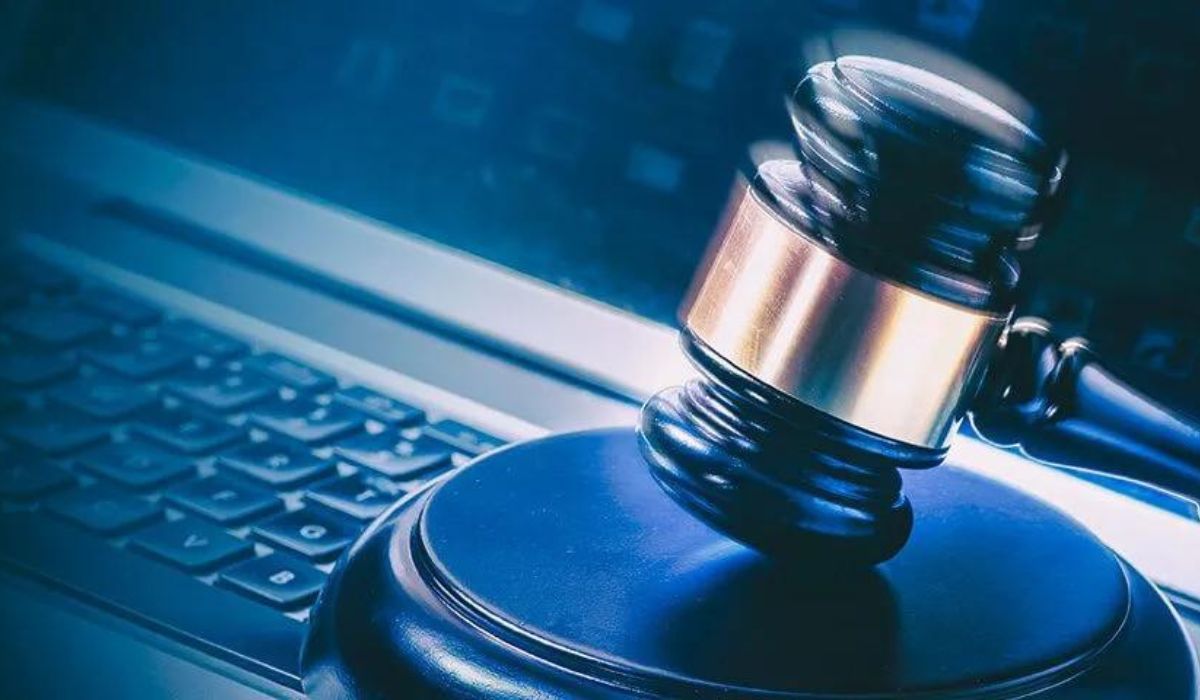In today’s fast-paced and increasingly regulated world, compliance—or “compliância” as it’s called in Portuguese—has become a critical aspect of running a responsible and successful business. More than just adhering to rules and regulations, compliance embodies a company’s commitment to ethical practices, transparency, and accountability. But what exactly is compliância, and why is it so important for businesses to get it right? Let’s break it down.
Table of Contents
What Is Compliância?
Definition and Meaning
Compliância refers to the process of ensuring that a business adheres to laws, regulations, and ethical standards. It encompasses everything from internal policies to external legal obligations. The term itself comes from the word “compliance,” meaning to conform or agree with set standards, which is vital for companies aiming to operate responsibly in today’s complex regulatory environment.
The Evolution of Compliance in Business
Compliance isn’t a new concept, but it has evolved significantly over the years. Initially, businesses focused primarily on following basic laws related to trade, labor, and finance. However, as globalization expanded, so did the scope of compliância. Today, it covers various areas including anti-corruption, data privacy, environmental standards, and more. Businesses now need a comprehensive strategy to navigate the web of regulations across multiple jurisdictions.
Why Compliância Is Crucial for Businesses
Risk Mitigation and Legal Protection
At its core, compliância helps businesses avoid legal penalties. Regulatory non-compliance can result in heavy fines, lawsuits, or even the shutdown of operations. By developing robust compliance programs, companies reduce the risks associated with breaches of law.
Building Trust with Stakeholders
A strong commitment to compliance also fosters trust among customers, employees, investors, and regulators. When a business shows that it adheres to the law and ethical practices, it builds a reputation for reliability and integrity—key components for long-term success.
Enhancing Corporate Reputation
More than just avoiding penalties, compliance contributes to a company’s image. With a strong compliance track record, a company not only avoids scandals but actively promotes itself as a responsible and ethical business. This boosts its reputation in the market, drawing in potential investors and customers who value accountability.
Key Elements of an Effective Compliance Program
Leadership Commitment
A successful compliance program starts at the top. Leadership must set the tone for the entire organization, clearly demonstrating that compliance is a priority. When leaders actively support compliance initiatives, employees are more likely to follow suit.
Training and Awareness
To achieve true compliância, employees at all levels need regular training. Effective programs should educate employees about relevant laws and ethical practices while also explaining their role in maintaining compliance. Awareness is key to preventing violations.
Internal Controls and Monitoring
Robust internal controls are essential for detecting and preventing non-compliance. These systems can track financial transactions, monitor employee behavior, and identify potential risks before they become major issues.
Reporting Mechanisms
Encouraging employees to report suspicious activities without fear of retaliation is vital for a compliance culture. Implementing anonymous reporting systems ensures that potential issues are flagged early, allowing the company to address them proactively.
The Legal Framework for Compliância
Major Laws and Regulations Governing Compliance
Compliance is regulated by a wide array of national and international laws, such as anti-bribery laws (e.g., FCPA), data privacy regulations (e.g., GDPR), and industry-specific requirements. Companies must be aware of the legal frameworks that apply to their sector and location.
Differences in Compliância Across Regions
It’s important to note that compliance isn’t one-size-fits-all. What works in one country might not work in another. For instance, European businesses must follow stringent data protection laws, while U.S. companies focus more on financial and anti-corruption regulations. Understanding regional differences is crucial for multinational businesses.
The Role of Technology in Compliance
Automating Compliance Processes
Technology plays a growing role in managing compliance. Automated systems help businesses stay ahead of regulatory changes, track internal compliance metrics, and even identify potential risks. This frees up human resources for more strategic decision-making.
AI and Machine Learning for Risk Detection
Artificial intelligence (AI) and machine learning are revolutionizing compliance. These tools can analyze vast amounts of data to detect patterns that may indicate non-compliance, such as unusual financial transactions or anomalies in employee behavior.
Data Privacy and Cybersecurity Concerns
With more businesses collecting and storing customer data, compliance with privacy laws has never been more important. Regulations like the GDPR set strict rules about how data must be handled, and companies must ensure that their cybersecurity measures meet these standards.
Common Compliance Challenges for Businesses
Keeping Up with Regulatory Changes
The regulatory landscape is constantly evolving. Businesses must stay informed about changes in laws and regulations that affect their operations. This can be particularly challenging for smaller companies that lack the resources to keep track of all developments.
Managing Cross-Border Compliance
For multinational companies, managing compliance across multiple jurisdictions is a major challenge. Laws differ from country to country, and what is compliant in one region may not be compliant in another.
Employee Resistance and Company Culture Issues
Sometimes, employees resist compliance efforts, especially if they see them as bureaucratic or unnecessary. Creating a culture of compliance is essential for overcoming these challenges and ensuring that everyone in the organization is on board.
The Relationship Between Compliance and Corporate Social Responsibility (CSR)
Integrating CSR and Compliance
Compliance and Corporate Social Responsibility (CSR) are often seen as separate areas, but they are deeply interconnected. A strong compliance program complements CSR efforts by ensuring that a business operates ethically and sustainably.
Compliance as a Tool for Ethical Business
Ethical business practices aren’t just about following the law—they also involve doing what’s right. Compliance helps ensure that companies act responsibly, aligning with broader goals such as environmental stewardship and social welfare.
Benefits of a Strong Compliance Program
Avoiding Financial Penalties
Non-compliance can lead to hefty fines, but a strong program helps businesses avoid these costly repercussions. In some cases, companies may even qualify for reduced penalties if they demonstrate a solid commitment to compliance.
Attracting Investors
Investors are increasingly looking for companies with a strong compliance track record Compliance
demonstrates that a company is well-managed and has a reduced risk profile, making it a more attractive investment.
Long-Term Business Sustainability
Beyond the immediate benefits, a robust compliance program contributes to the long-term sustainability of a business. By avoiding legal and ethical pitfalls, companies can focus on growth and innovation without worrying about regulatory setbacks.
Compliance Trends in 2024 and Beyond
Focus on Environmental, Social, and Governance (ESG)
In the coming years, we can expect more focus on Environmental, Social, and Governance (ESG) compliance. Investors and consumers alike are demanding that businesses play a larger role in addressing global challenges like climate change and inequality.
The Rise of Data Protection Laws
As data breaches become more common, data protection will continue to be a major area of focus for compliance. We can expect stricter regulations governing how companies collect, store, and use personal data.
Globalization and the Need for Unified Compliance Standards
As businesses continue to expand across borders, there will be a push for more unified compliance standards. This will help reduce the complexity of managing compliance across multiple regions and streamline global operations.
Steps to Build a Robust Compliance Framework
Assessing Risks and Gaps
The first step in building a compliance framework is conducting a risk assessment. This helps identify areas where the business may be vulnerable to non-compliance.
Developing and Implementing Policies
Once risks are identified, businesses must develop policies that address those risks and ensure compliance with relevant laws and regulations.
Continuous Monitoring and Improvement
Compliance is an ongoing process. Companies must continually monitor their programs and update them as laws change or new risks emerge.
The Role of Compliance Officers in Modern Organizations
Responsibilities and Skills
Compliance officers play a crucial role in ensuring that companies meet regulatory standards. They are responsible for designing compliance programs, monitoring adherence to policies, and addressing potential violations.
How Compliance Officers Shape Corporate Behavior
More than just enforcing rules, compliance officers help shape the ethical behavior of an organization. By promoting a culture of accountability, they ensure that compliance becomes part of the company’s DNA.
Case Studies: Companies with Strong Compliance Programs
Example 1: How Company A Overhauled Its Compliance
Company A faced a major compliance scandal a few years ago. Since then, they have overhauled their compliance program, implementing more robust internal controls and automating their compliance tracking systems.
Example 2: Company B’s Approach to International Compliance
Company B operates in over 50 countries, making compliance a significant challenge. They addressed this by developing a unified global compliance framework that is flexible enough to adapt to regional laws.
How to Promote a Culture of Compliance in Your Organization
Encouraging Open Communication
Creating a culture of compliance requires open communication channels. Employees should feel comfortable reporting any concerns or potential violations without fear of retribution.
Recognizing and Rewarding Ethical Behavior
Positive reinforcement can go a long way in promoting compliance. Recognizing and rewarding employees who demonstrate ethical behavior encourages others to follow suit.
Conclusion
Compliância is more than a legal necessity; it’s the foundation of responsible business. Companies that prioritize compliance not only avoid penalties but also build trust with stakeholders, protect their reputation, and ensure long-term sustainability. As regulations continue to evolve, businesses must remain vigilant, proactive, and committed to fostering a culture of compliance.
FAQs
What’s the difference between compliance and ethics?
While compliance refers to adhering to laws and regulations, ethics is about doing what’s right, even when laws don’t dictate it. Compliance is often legally required, whereas ethics are more about moral judgment.
How does compliância affect small businesses?
Small businesses must also comply with relevant regulations, though the scope may differ. Compliance can be resource-intensive, but neglecting it can lead to severe penalties, even for smaller firms.
How often should compliance training be conducted?
Ideally, compliance training should be conducted annually or whenever there is a significant change in regulations or company policy. Ongoing refreshers can help ensure employees remain informed and vigilant.
Can technology completely handle compliance needs?
While technology can automate many compliance tasks, it cannot replace human oversight entirely. A balance between automation and human intervention is essential for an effective compliance program.
What are the risks of ignoring compliance regulations?
Ignoring compliance regulations can result in fines, legal actions, loss of business licenses, and severe reputational damage. In extreme cases, businesses may face closure or criminal charges.









